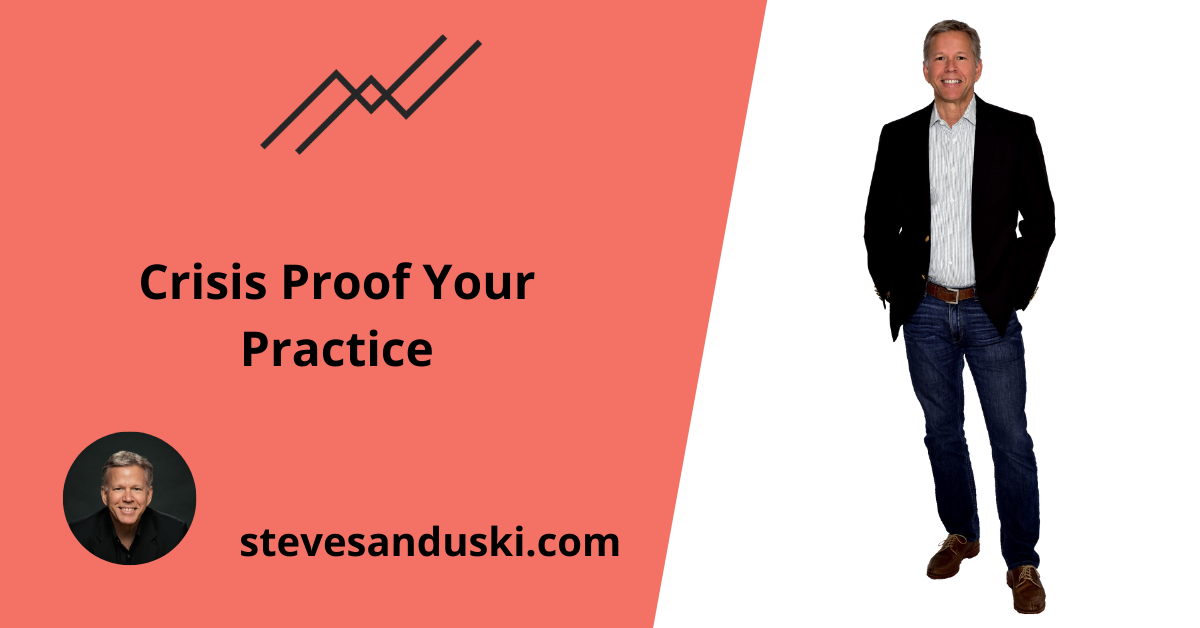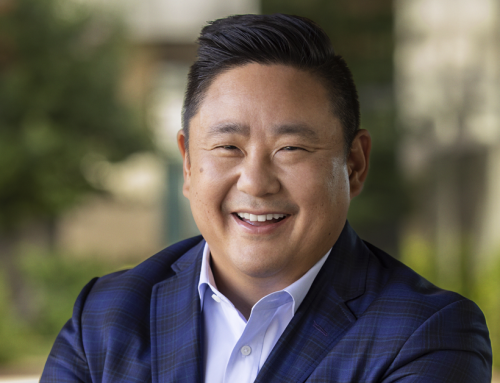Many folks have pointed out that the coronavirus pandemic is a public health crisis first and a market crisis second. There’s nothing advisors can do about the first part except keep your team at home and move your operations online. As for the markets, sure, there are some moves we can make depending on client situations. But those tools are in everyone’s toolbox.
However, there’s a third level to this crisis where the best advisors can really set themselves apart: helping clients at a personal level. By doubling-down on your client experience you can support clients as they’re feeling vulnerable and underscore your value.
Even before the coronavirus outbreak, this idea of advisory as hospitality had become a recurring theme at conferences I was attending, in discussions I was having, and on my Between Now and Success podcast. Here’s what three top advisors told me about providing an exceptional client experience, and how you can adapt those ideas to help your clients when they need you the most.
1. Meet your clients where – and when – they need you.
At a crisis moment like this, an advisor’s regular businesses hours shouldn’t apply.
Your retired clients, who worked so hard to schedule their time without work, just had those schedules torn up. Your working clients are juggling WFH, kids’ e-learning, and a very uncertain college landscape for their teenagers. Many of your market-skeptical millennial clients are out of work or soon will be.
And we’re all managing the worry over health care and meeting basic needs that comes with living through this pandemic.
Customer service expert Joseph Michelli has studied what separates superstar firms like Starbucks, Zappos, Ritz-Carlton, and Mercedes-Benz from the merely great. He told me that one common denominator of world-class customer service is meeting customers on their terms, where and when they need you the most.
“Satisfaction is this intellectual calculation of your competence on need-meeting,” Joseph says. “Beyond that, then make it easy for me. Figure out ways where I can engage you on my terms based on my lifestyle. At times that’s going to mean technology and self-serve. Other times it’s going to mean, please rescue me from all this technology with some human insights. Give me a person. Then finally, what they’re looking for is some layered sense of care. I don’t mean care for you because I met your needs, but care about you.”
A big part of caring for your clients right now is being receptive to all that scheduling craziness I mentioned. Somewhere in between algebra homework, teleconferences, brushing up their resumes, and filling that time they should be golfing, your clients are going to glance at the news and see the markets jumping around. Then, they’re going to start worrying about how the latest fluctuation affects them. You and your team need to be available to answer that phone call or email if it comes in.
Barron’s Hall of Fame advisor Scott Tiras told me, “If a client wanted to talk to you tomorrow, chances are they would have called or emailed you tomorrow, but they emailed you today or called you today, guess what? They want to talk to you today. So we’re very, very big on responding to our clients immediately.”
And, just as important, you need to ramp up your newsletter, podcasting, video, and blogging schedules and deliver trustworthy information that’s going to keep your clients feeling informed, not afraid.
2. Co-create the planning experience.
When we go to Starbucks, my wife and I each have very different customer experiences (Or DID, back when you could still go to Starbucks, but stick with me here …). My wife prefers a quiet corner where she can read and sip on tea. I like to drink my coffee in the middle of the din, maybe hear new music or chat with someone the next table over. The guy behind me in line might be getting ready to plug in his laptop and do some work. And although we’re all enjoying well-made drinks in the same iconic cups, we’re choosing from 87,000 possible combinations.
Starbucks is Starbucks because it has found a way to standardize how it delivers personalized client experiences. Julie Littlechild calls this concept “the co-creation of value” between company and customer. To co-create a client experience that strengthens the advisor – client relationship, she places heavy emphasis on soliciting client feedback and asking questions about her clients’ needs.
“It could be as simple as sitting down one-on-one with a group of five pre-retiree clients and asking them to describe a client experience that has had a significant impact on them,” Julie explains. “Trying to peel back the onions and go deeper and understand what extraordinary looks like through the eyes of your target client, what really resonates. Where you are not just saying, ‘How are we doing?’ That’s not co-creation. That’s measurement. But you’re saying, ‘What are your key challenges? What’s on your mind? What kind of educational topics are you interested in? How do you want to meet? When do you want to meet? Where do you want to meet?’ I think there’s all of these different moments where we invite input, and if that input changes the experience, that’s co-creation.”
This emphasis on feedback fits with something I’ve been advising my coaching clients and members of my ROL Advisor Program during this crisis: clients want you to listen. No matter how good your historical charts on market cycles is, what your clients need is more empathy and less data, more reassurance and less lecturing about “staying the course.” Connect emotionally first and that will leave room for your logical appeals.
My business partner, Mitch Anthony, says that in moments of crisis one of his favorite questions to ask anxious clients is, “How is this affecting you?”
One of my favorites is, “On a scale of 1 to 10, with 10 being absolute panic and 1 being carefree, how worried are you about this?”
These questions give you the feedback you need to personalize the crisis response. Often, these questions also have a calming effect on the client. Body language, vocal tone, and anxiety from too much social media might be screaming 10. But given the task of reflecting and assessing, clients often take a breath and come back with a 6 or 7.
You can work with a 7. And by soliciting that valuable feedback, you’ve co-created a way to do it.
3. Tend to relationships.
Most of Laila Pence’s clients knew when her mother passed away. That’s because Laila puts such a big emphasis on creating real relationships and being a part of her clients’ lives. She friends them on Facebook. She sends them Christmas and birthday cards. She takes them to dinner, baseball games, plays.
And, in return, as the sad news got around, Laila received over 300 sympathy cards.
“I was overwhelmed with the amount of love I received back,” Laila says, “and I think in this business whatever you put out, you get back someday.”
Laila’s family fled war-torn Egypt when she was still a child. She honed her customer service skills, and her incredible work ethic, by waitressing her way through college and then pounding the pavement as a young advisor. These experiences taught Laila that attracting and retaining clients was really a matter of connecting with people. Today, as she’s running a billion-dollar firm, Laila focuses her valuable time exclusively on nurturing her relationships with prospects and clients.
“Unless you build these strong relationships, you really don’t get the clients, you don’t get that commitment,” Laila says. “Once you become a friend, clients never fire a friend. They refer to them. And so I learned that you can’t just go out with them and fake it. You have to be really interested in these clients and you have to build relationships.”
Again, any advisor can show your client a market history chart and tell them, “This too shall pass.” But those of us who believe in Life-Centered Planning know our clients better than that. We know their goals and their challenges. We know their hopes and concerns. And we know what they want their lives to be like once we get through this pandemic and start refocusing on getting back to a sense of normalcy.
Social distancing has underscored just how much people need to feel connected with other people. If they can’t do it face-to-face, they’ll use the phone, Zoom, and social media to keep those connections alive. You can make yourself an important part of that support network for your clients. Be responsive to what they need. Be thoughtful and purposeful about how you communicate.
And, above all, be human. You don’t have all the answers right now. Nobody does. But the conversations you have in the weeks ahead, the adjustments you make, the bad decisions you prevent, are things your clients will remember long after this outbreak has passed. And the client experience you develop as you focus on these human touches now will benefit your business for years to come.
Resources
– Values Clarification Toolkit Click here to download this FREE tool and start living your values. [/optinlocker]





